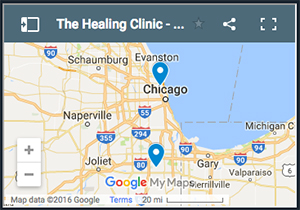Cannabis vs. Opiates 2015 (Infographic)
Opiate Addiction: A National Epidemic
Opiate addiction and opiate/heroin deaths have been plaguing the U.S. for decades, with a steady increase in occurrences. According to the National Institute for Drug Addiction, there was a 3-fold increase in the total number of prescription opioid related deaths, and a 5-fold increase in the total number of heroin deaths from 2001-2013. The Centers for Disease Control and Prevention has officially labeled the problem an “opiate epidemic.”
Opiates are highly addictive and very dangerous, yet are much easier to obtain legally than cannabis. For example; in order to access medical cannabis in Illinois, patients are required to register with the Department of Public Health, obtain a certification from a physician, and submit a federal background check. Meanwhile, regulations around obtaining a prescription for opiates are essentially nonexistent.
Legalized Cannabis Acts as a Deterrent to Opiate Abuse
Here is a fact that might surprise you: According to a study published by the National Bureau of Economic Research, states that have implemented medical cannabis programs possess lower rates of opioid addiction and overdose deaths. “Using both standard differences-in-differences models as well as synthetic control models, we find that states permitting medical marijuana dispensaries experience a relative decrease in both opioid addictions and opioid overdose deaths compared to states that do not.” authors reported. The study also found that female medical cannabis patients over the age of 40 showed the most significant decrease in problematic opioid use.
Another study that was published by JAMA Internal Medicine revealed that opiate-related deaths decreased by approximately 33 percent in 13 states in the following six years after medical cannabis was legalized. “The striking implication is that medical marijuana laws, when implemented, may represent a promising approach for stemming runaway rates of nonintentional opioid-analgesic-related deaths,” wrote opiate abuse researchers Dr. Mark S. Brown and Marie J. Hayes in a commentary published alongside the study.
Researchers looked at medical cannabis programs and death certificate data in all 50 states between the years of 1999 and 2010. During that time, only 13 states had implemented medical cannabis programs. Researchers noticed that the rates of fatal opioid overdoses were significantly lower in states that had legalized medical marijuana. In 2010 alone, states with medical cannabis programs saw approximately 1,700 fewer opiate-related overdose deaths.
“We found there was about a 25 percent lower rate of prescription painkiller overdose deaths on average after implementation of a medical marijuana law,” lead study author Dr. Marcus Bachhuber said.
We created the following infographic comparing cannabis and opiates. Take a look and let us know what you think, your feedback is always appreciated.
Share or embed this infographic on your website
Many recovering opiate addicts actually report using medical cannabis to relieve uncomfortable withdrawal symptoms including anxiety, agitation, insomnia and digestive issues. A meta-analysis of experiments conducted at Columbia University analyzed the behavioral effects of cannabis on recovering addicts. Testament to these results is a recovered heroin addict who shares his struggles with heroin and methadone addiction:
“The marijuana helped me to sleep and eat and provided strength to continue detoxification. With the help of marijuana, I weaned myself off methadone in about four months. To this day I have continued to smoke marijuana, about three cigarettes per day and have never felt the desire to return to either heroin or methadone. My conclusion, based on this experience, is that marijuana is a potent medicine in the treatment of withdrawal from both heroin and methadone.”
Growing Consensus in the Health Science Community
Doctors, researchers, specialists, and former addicts are slowly coming together to realize the potential of medical cannabis as an alternative to the high-risk treatment medications currently offered to counter opiate withdrawal symptoms.
In the following video, Chief of Hematology-Oncology at San Francisco General Hospital, Dr. Donald Abrams describes the relationship between cannabinoids and opiates. He explains his findings after conducting an independent study looking at the interaction between opioids and cannabinoids in pain relief.
“Cannabinoids allowed for more pain relief at lower plasma levels. So what does this mean? It means for people who have pain who are on opioids, they may be able to take lower dosages, the same dosage for a longer period of time and they may have decreased side effects. Because as you know, opioid side effects include nausea, which cannabis can help, constipation, many people think cannabis also helps constipation.”
Could medical cannabis eventually bring and end to the national opiate epidemic? The answer to that question is, potentially yes. History has shown us that when more states implement medical cannabis programs, less opiate related deaths occur. Just one more life saving benefit of the cannabis revolution, with many more yet to be discovered.
Thanks for checking in with us. We appreciate you!
Like this post? Show us some love with a “Like” or “Share” this post with your friends!
[fblike]




